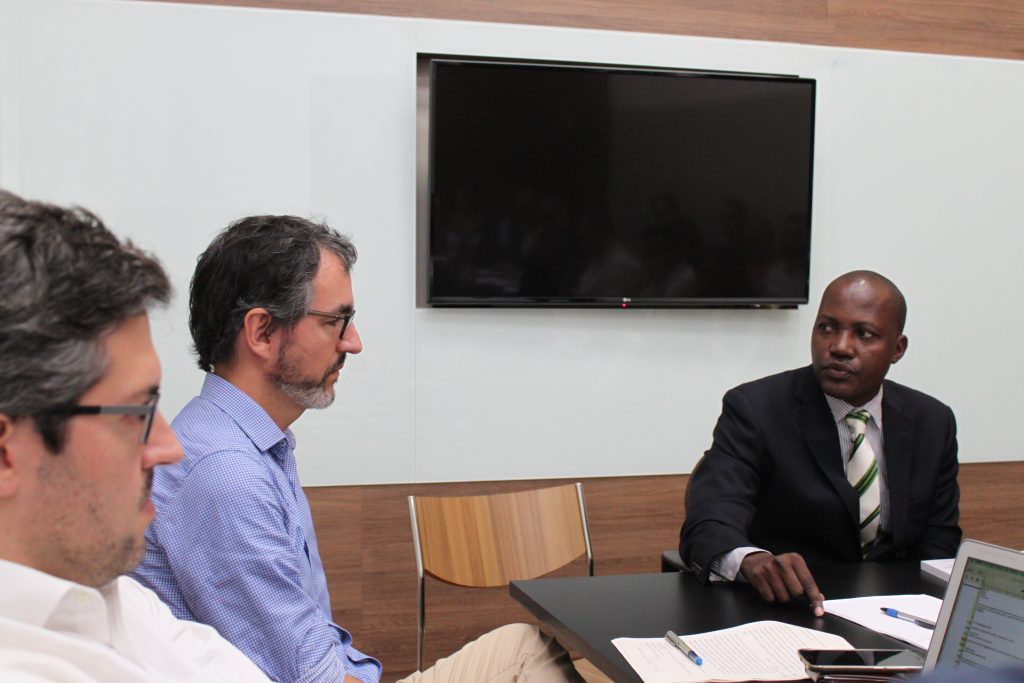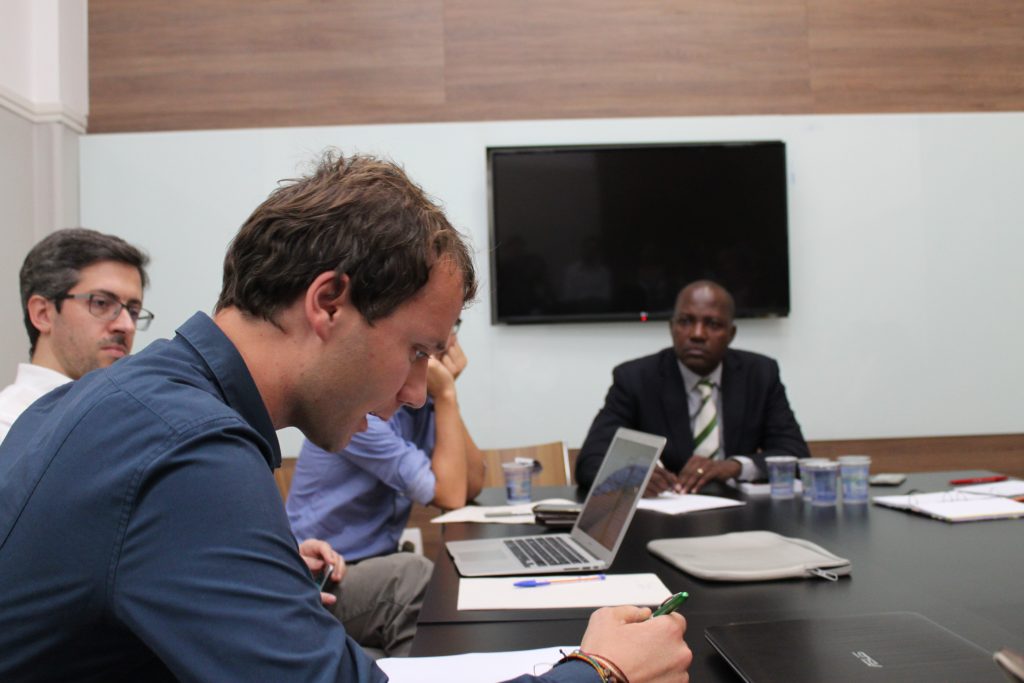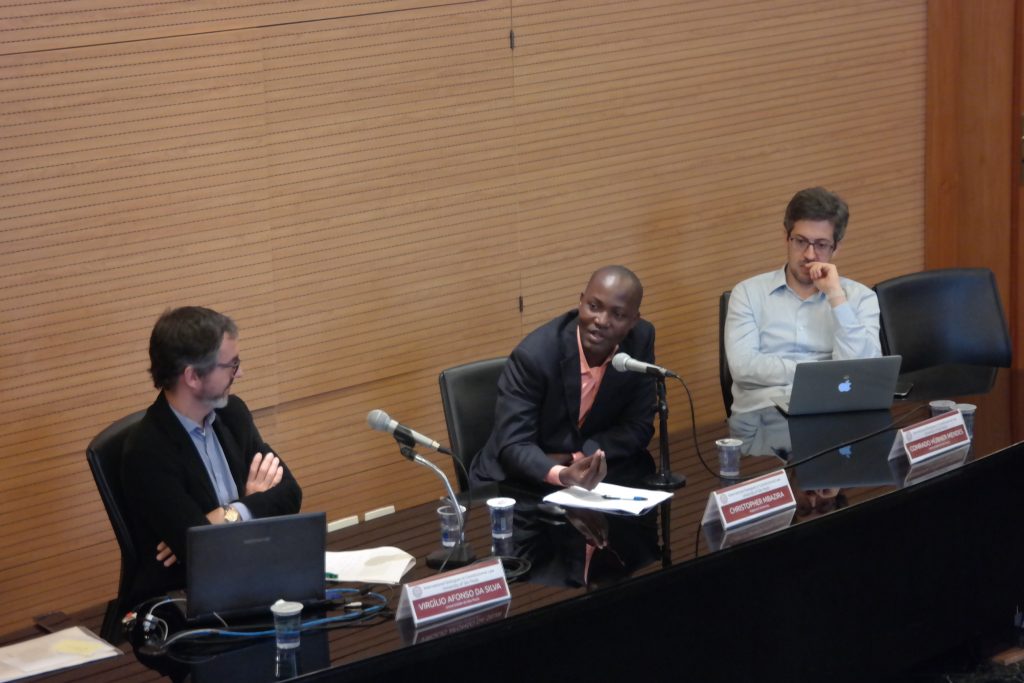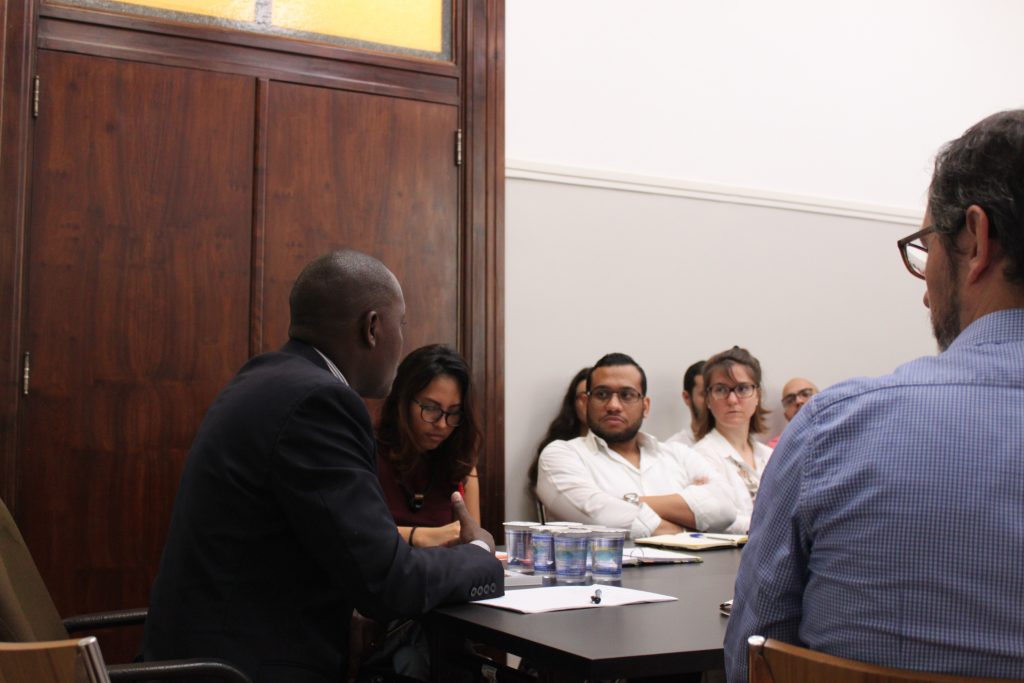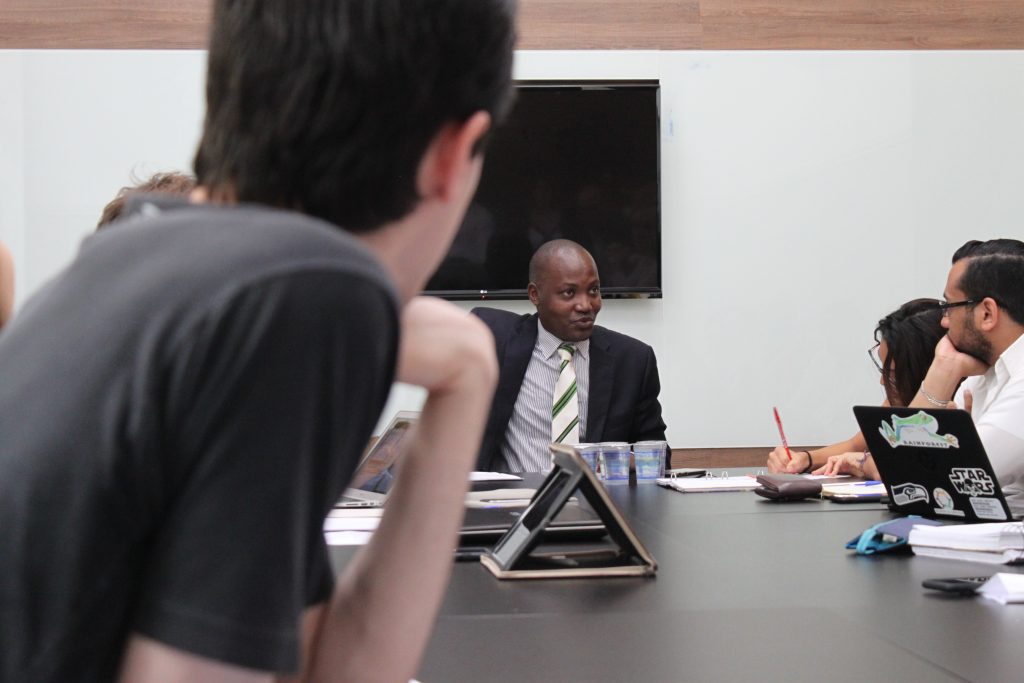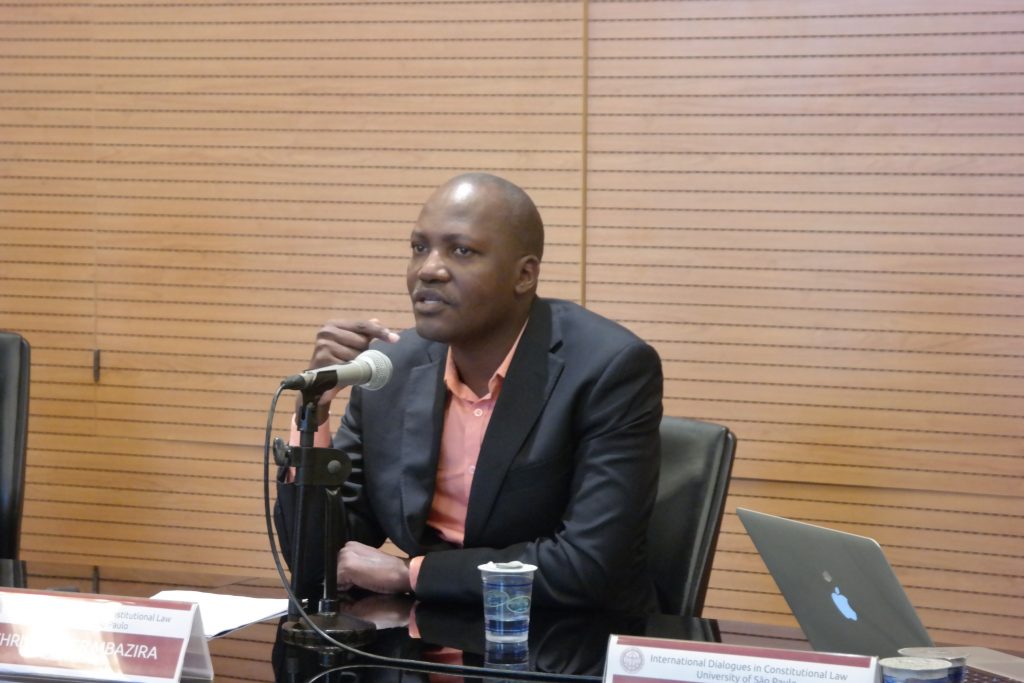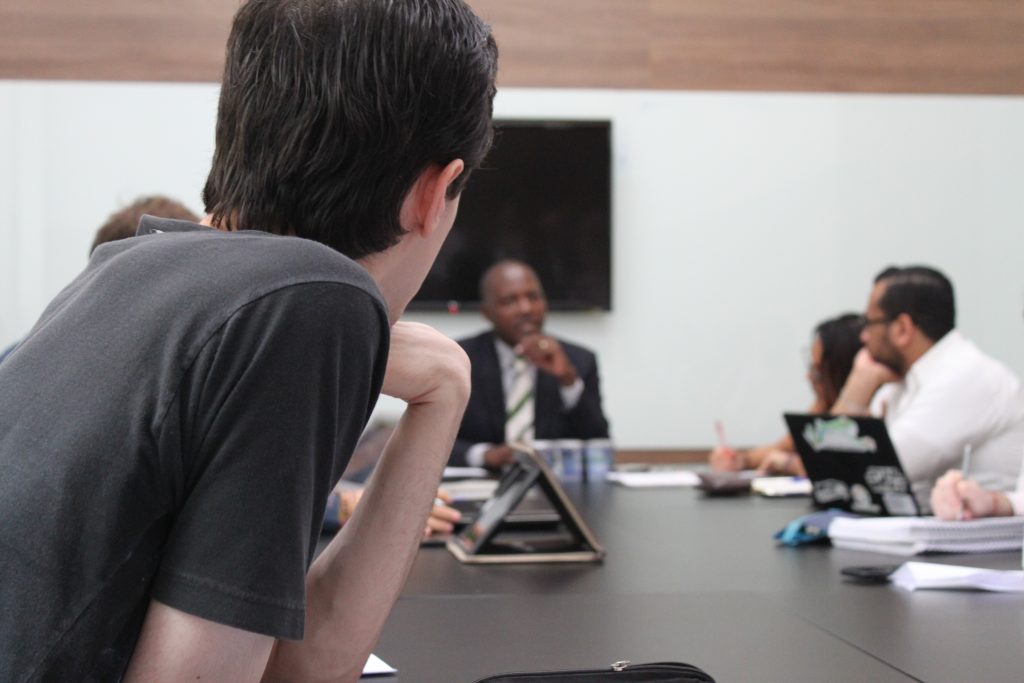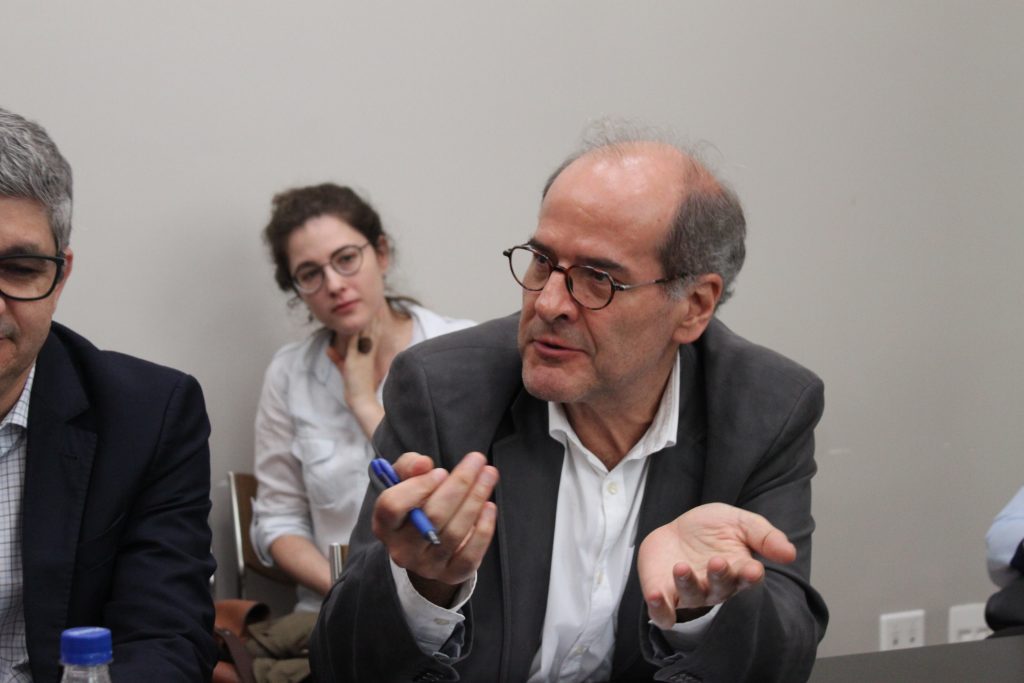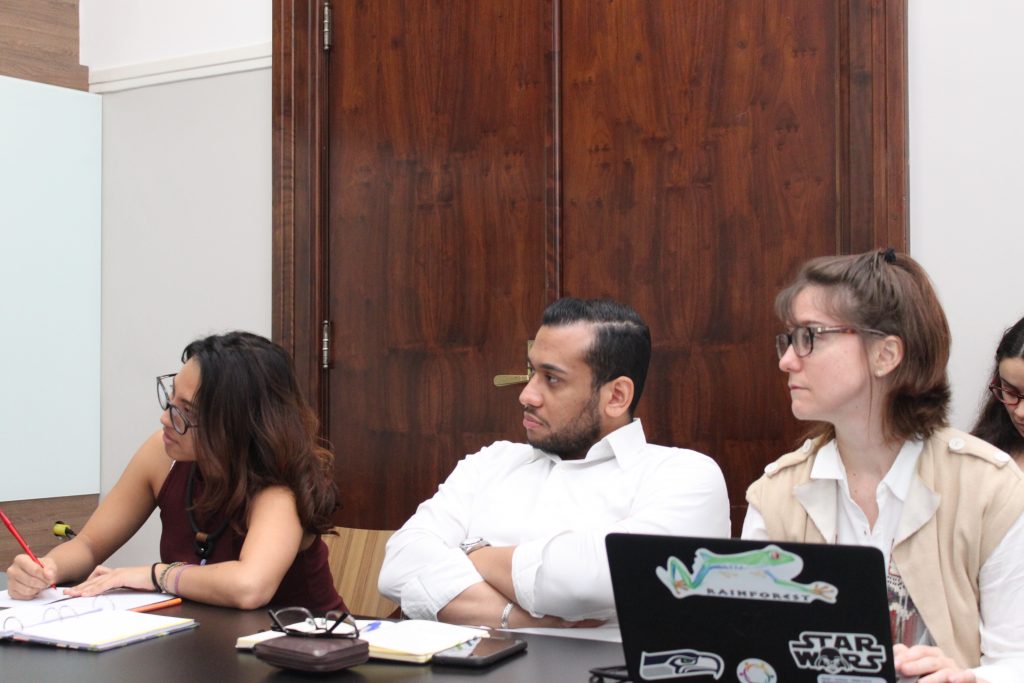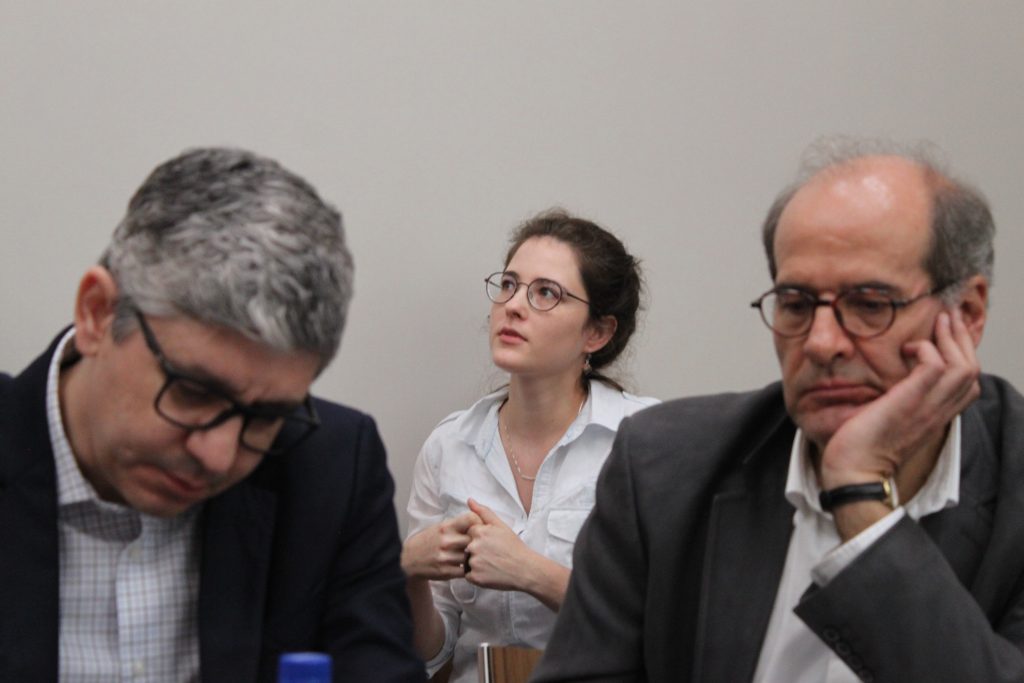On October 17, 2018, our guest was Prof. Dr. Christopher Mbazira, professor at Makerere University in Uganda. From the analysis of constitutional jurisdiction and constitutionalism in three African countries (South Africa, Kenya and Uganda), Mbazira identifies the existence of a transnational judicial dialogue. This dialogue is mainly expressed by direct interaction between judges from different countries which voluntary quote votes from other Courts.
Mbazira argues that the best explanation for this phenomenon is that judges have progressively increased the amount of times foreign Court’s decisions are quoted because they identify themselves as peers. Thus, organically, they have come to recognize similarities in the agenda pursued, in the methods used and in the purposes sought by the institutional structure in which they belong.
To illustrate this relationship, he presented a set of concrete examples. In this movement, South Africa emerges as the Country leading the changes and inspiring other countries to emulate them, as a leader of the pack. However, in recent times, Kenya has also emerged as a possible influence for other Courts in advancing rights. This was mainly due to the adoption of the new constitutional text, also influenced by other Countries. Among other provisions, this constitution establishes that State must prove the absence of financial resources to finance public policies.
After professor’s Mbazira’s presentation, he answered questions presented by the audience, among which (i) about the possibility of naming the phenomenon as dialogue if no actual exchanges between Courts occur, (ii) related to the evidence of the existence an effective influence, and (iii) resulted in an invitation to conduct a normative reflection on the consequences of this phenomenon.
Written by Ana Laura Pereira Barbosa. Translation by Natalia Langenegger. Photos by Artur Pericles Lima Monteiro and Fernanda Mascarenhas de Souza.

